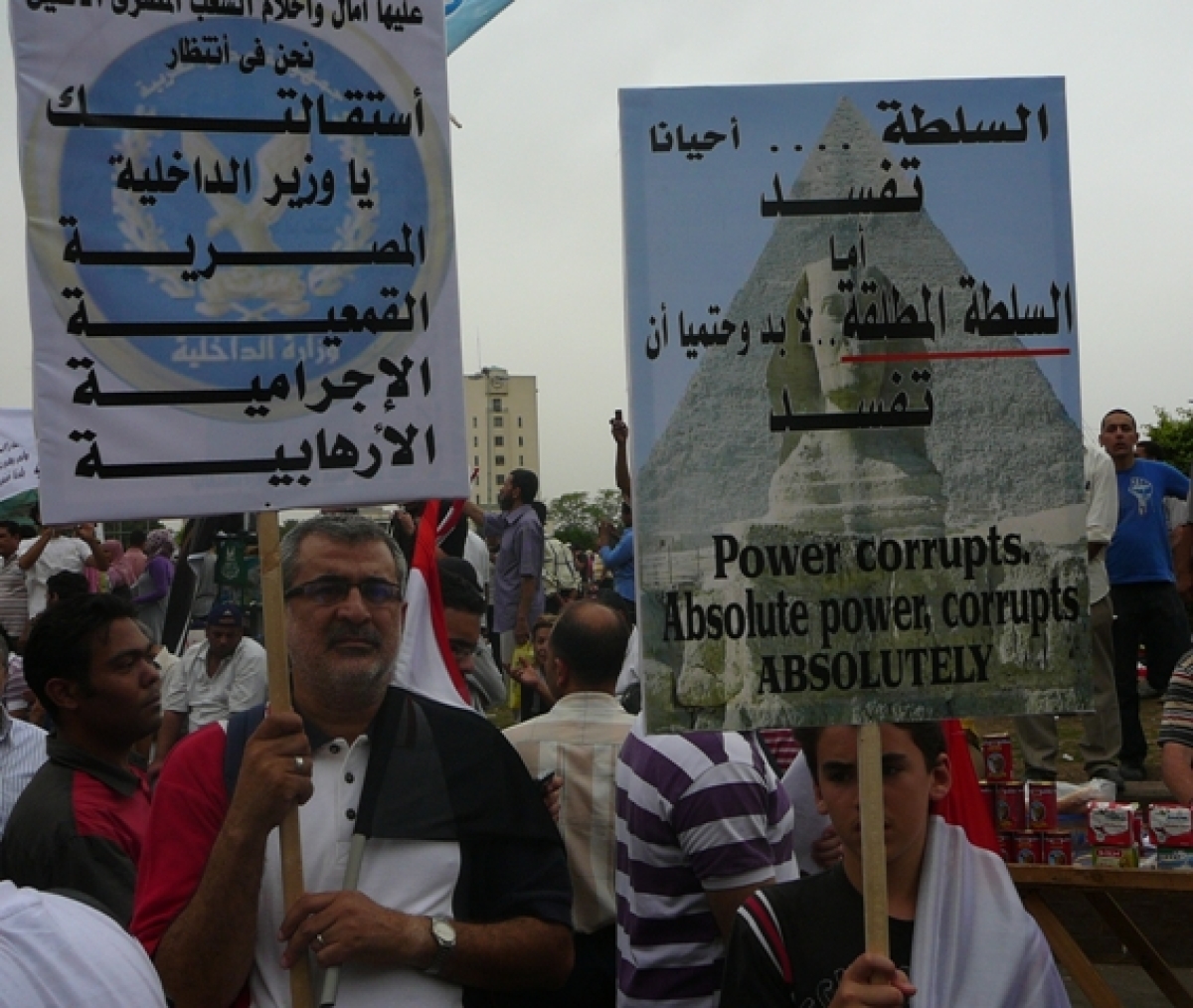Ägypten: 'Apokalypse ohne Ende'

Tahrir Platz Kairo im Mai 2011, Bild: Thomas von der Osten-Sacken
Die ägyptische Nationalbank meldet eine monatliche Inflationsrate von 38,2 %, die chronische Wirtschaftskrise lässt immer größere Teile der Bevölkerung verarmen.
Unter dem vielsagenden Titel "No Utopia in Dystopia" veröffentlicht das New Lines Magazine einen Essay von Mahmoud Salem, bei dem es eigentlich um die ziemlich irre Debatte in Ägypten über die von Regierung und Medien empört zurück gewiesene Behauptung geht, dass die Ägypter eigentlich von Black Africans abstammen. Ausgelöst wurde das Ganze von der "schwarzen Kleopatra" aus einer Netflix Serie.
Salem gelingt es dabei in wenigen Absätzen ein Sittenbild des Ägyptens nach zehn Jahren Mursi-Autokratie zu zeichen, dass so deprimierend wie treffend ist, weshalb ich die Absätze hier teile.
Sie bestätigen nur einmal mehr, dass 2011 eine einmalige historische Chance verpasst wurde, teilweise, wenn auch nicht ausschließlich, dank einer komplett verfehlten Politik der EU gegenüber den Protestbewegungen. Niemand vermag zu sagen, ob, wenn einiges anders gelaufen wäre, diese Chance besser genutzt worden wäre. Es scheint nur, sie kommt in absehbarer Zeit nicht wieder und deshalb ist zu befürchten, dass irgendwann auch Ägypten kollabiert. Welche Konsequenzen dies für die Region aber auch Europa hätte, möchte man sich gar nicht ausmalen.
Surviving 10 years of what can only be described as catastrophic military rule, the country has been undergoing a never-ending economic apocalypse since March of last year. Suffering three devaluations since then, the Egyptian pound has lost more than half of its official value, with black-market rates showing that the current official rate is overvalued by at least 33%. Continued hyperinflation has become the new normal, and about a third of the population found itself under the poverty line overnight, with little hope of recovery. If that weren’t bad enough, during the hottest summer the country has ever faced on record, the Ministry of Electricity announced that it would enact random electricity cuts of at least an hour each, possibly more, at any hour of the day. Those state-enacted blackouts have disrupted businesses, destroyed electric home appliances, trapped residents in the smoldering heat of their houses and disabled apartment building elevators for hours on end. The Egyptian people’s frustration is only compounded by the fact that the state has given no credible explanation of the cause of these blackouts or an official end-date for them.
Facing years of failure, the military state became obsessed with controlling the media, which they did by buying all major media channels in Egypt. The military managed to turn them all effectively into state-run outlets that parrot the state narrative and misinform audiences by peddling a host of conspiracy theories. Over the past two months alone, for example, viewers could find themselves watching supposed experts explaining David Icke’s reptilian elite conspiracy theory to the “uninformed” Egyptian audience on a major channel and switch to find another talk show hosting an Islamist flat-earther. Both would be on mainstream shows and face no pushback or debunking from the hosts. After years of pushing xenophobia, colorism, homophobia and global conspiracies to entangle the population in outrages of the week, they are now adding every tinfoil hat conspiracy theory to their programming menu.
Knowing that controlling conventional media outlets isn’t enough, the state’s efforts to maintain a good image on social media networks have created an unofficial policy of “trend policing.” If you are a citizen who suffered a crime or an illegal injustice and need the police’s assistance, you are unlikely to get the state to show up if you call the emergency hotline number or even file a police report. What you should do instead is go on social media, post a video hysterically ranting about the crime you suffered and ask people to help you make that video go viral and trending. Once that happens, the police and the prosecutor’s office will move quickly and decisively to aid you and investigate and resolve said injustice, as a form of state virtue signaling or online PR.
This is naturally not ideal for victims who wish to uphold their privacy and dignity and not scandalize their victimization to seek justice, but its effect on the population is even more sinister. This barrage of horrifying stories creates a belief that society is full of literal monsters and re-enforces that belief daily. A few years of that modus operandi have turned Egyptian social media feeds into daily traumatic amplifiers of an endless stream of the ugliest stories and incidents of human misery and cruelty in Egyptian society that require the average social media users’ attention, emotional investment and outrage to be rectified by the state, through “the power of social media.”